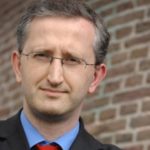Speech Truth or Dare, September 17th 2017
In preparation for this session I looked at the idea of critical citizenship. Specifically at the question of what are the preconditions for critical citizenship?
I would say there are at least three:
1. procedural: everyone playing by the same rules, and accepting the legitimacy of those rules. I’m thinking here of our constitution, and of the international charters in which our fundamental rights or liberties have been enshrined;
2. moral: everyone accepting the legitimacy of the other as an actor in that debate. Acceptance that life, liberty and the pursuit of happiness is the right of every individual. That we believe that all men and women are created equal, that we accept and respect the fundamental dignity of each individual;
3. epistemological: everyone accepts that debates may be guided by emotions and/or ideologies, but that they should be grounded in facts. Or at least
checked against them.
Is there a crisis in critical citizenship? It’s certainly being challenged on all three grounds.
To give one example: American conservative radio talkshow host Charlie Sykes recently did an interview with NPR. He told about how facts seemed to
have lost their meaning for some of his listeners. When lushing back against some crackpot conspiracy theory with facts, he was told these facts counted
for nothing because sources (NY Times, CNN etc) “had lost legitimacy”.
This is a problem: facts matter. If facts lose their meaning, there’s no basic standard to which we can appeal to assess political claims. Then any kind of
theory can be used to explain reality, even conspiracy theories — which as far as I’m concerned is the lowest form of sociology.
So facts matter. As does morality. It really is a problem if a politician treats whole groups of citizens as a suspect class, and tries to strip them of their
fundamental rights (wanting to outlaw an entire religion). Or if a politician suggests all society’s ills are caused by “the elite”, suggesting those who govern the country are engaged in a deliberate secret campaign to ruin the country.
It is equally problematic if a politician calls a democratically elected parliament ‘fake’, thereby delegitimizing our democratic procedures.
So we have to push back. We have to defend critical citizenship from those who would turn it into something dangerous.
Do I think we can do that? Yes I do. First and foremost by speaking out. As we are doing here. There may be other means, but I’ll leave that for the discussion
that follows.
Now if this was a political speech, I would end by leading you to sunny uplands where problems melt like snow flakes, and enemies of truth and decency are
defeated through the mere use of words freely spoken.
But this is a philosophical setting, so I’ll end not with an exclamation mark but with a question mark. My question then is this. Assuming we all agree on the
need for critical citizens, how can we make sure it isn’t turned into a destructive force? Do we set limits to the freedom to speculate and criticize — a tempered version of critical citizenship? Or do we look for ways to strengthen our democratic system so that it can withstand even the most outrageous attacks — a setting in concrete of our liberties and our values in a kind of super constitution which no plebiscite could ever overturn? Is that even possible?
Those are my questions, I look forward to hearing your answers.
Columnist NRC Handelsblad, owner/editor of opinion site Jalta.nl
